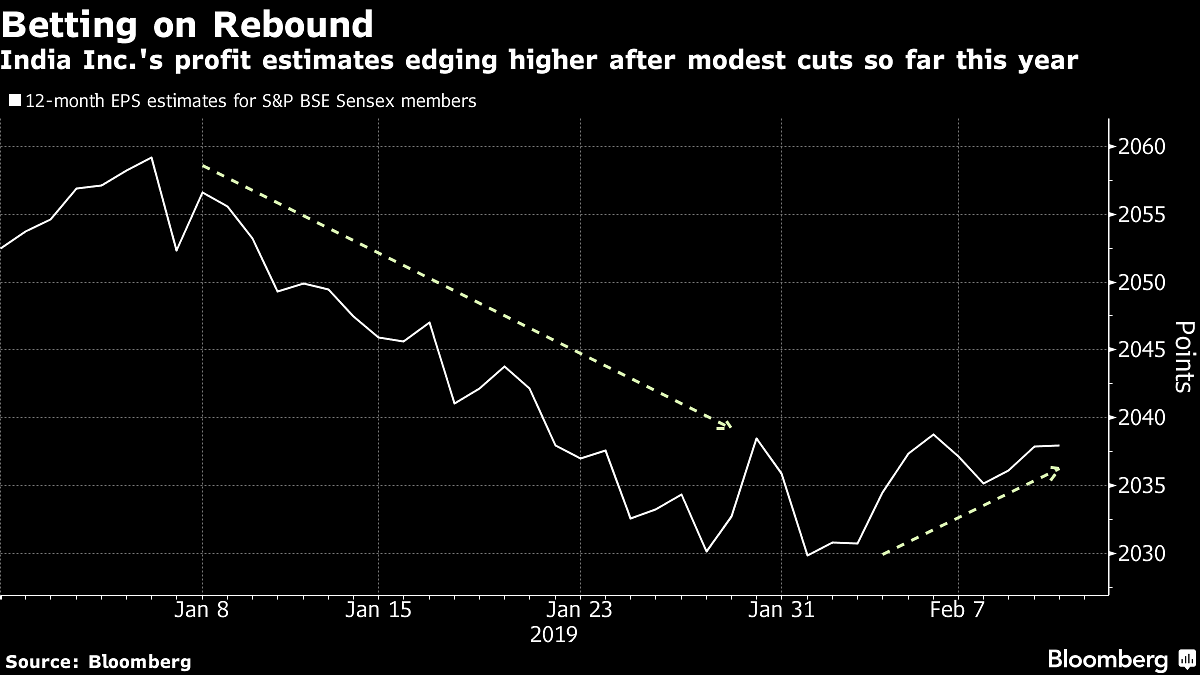Singapore: Indian equities will see “double-digit” earnings growth for the next three fiscal years as changes to government tax and bad-loans policies allow more cash to be channeled into Asia’s third-largest economy, according to the nation’s largest brokerage.
Rules for tackling soured debt and a nationwide sales tax would increase savings and lower the cost of capital for companies, helping drive the pace of earnings growth to between 10 to 15 percent for each of the next three years, Shilpa Kumar, chief executive officer of ICICI Securities Ltd., said in an interview in Singapore.
India’s benchmark S&P BSE Sensex index has seen profit growth only once in the past four calendar years, while the gauge has gained by a third in that period — including touching a life-time high in August, according to Bloomberg data. That’s prompted fund managers to warn that valuations are too high and led to lowering in earnings estimates this year from record levels.
Kumar blames the elusive profit growth on the disruptions caused by policy changes, and said the bedding down of reforms should result in more robust future earnings. “Structural pain is behind us.”
There’s some evidence of the recovery. Most of the Nifty companies that have reported earnings so far for the three months through December have either exceeded or matched estimates, data compiled by Bloomberg show.

Earnings growth could accelerate, especially in the year to March 2020, as reforms “start bearing fruit” and the consumption stimulus announced in the recent budget takes hold, Jitendra Gohil, head of India equity research at Credit Suisse Wealth Management, wrote in a Feb. 8 note.
India’s economic outlook also gets a boost from “benign” crude oil prices, which are more important to investors than national elections in May because lower fuel costs will give the government scope to improve its financial position, Kumar said.
While India is among the fastest growing major economies in the world, the expansion faces risks from the price of oil — the nation’s top import — and its impact on the rupee, already Asia’s worst-performing currency this year, and the health of public finances.
Prime Minister Narendra Modi’s government Feb. 1 widened its fiscal deficit targets for this financial year and the next to 3.4 percent of gross domestic product, giving it more spending power before national elections in May.
Kumar advises investors to buy shares of banks, financial intermediaries and producers of fast-moving consumer goods that will benefit from changes in the structure of the economy.-Bloomberg
Also read: Year after historic circular, debate over RBI’s regulation making powers still mired in confusion



